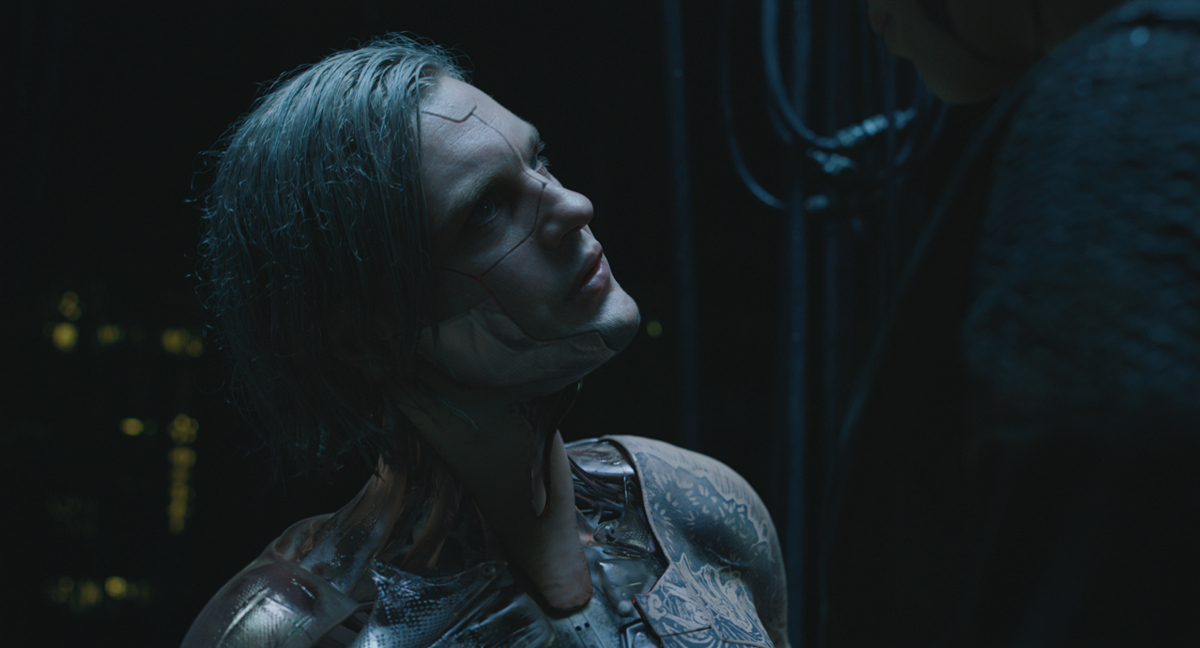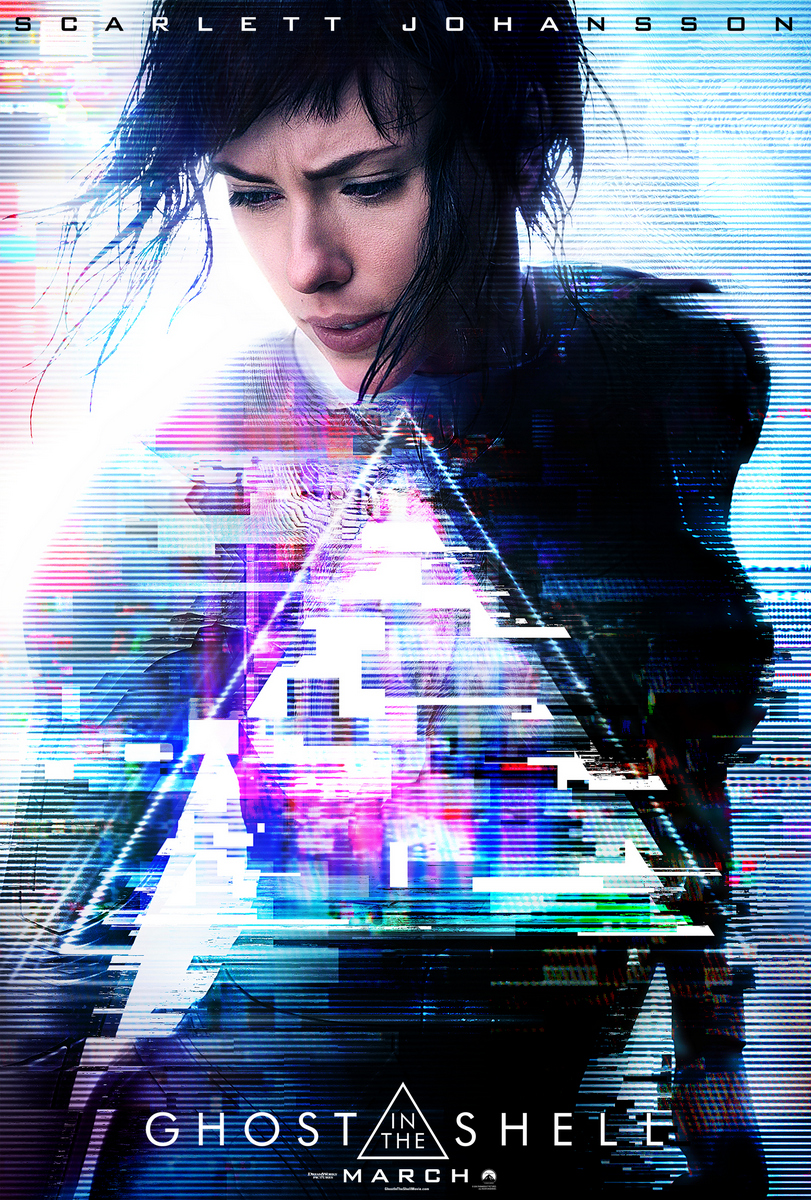The Visually Stunning ‘Ghost In The Shell’ Has A Major Problem (Movie Review)
 For a new potential blockbuster so rich with ideas and visual imagination, it’s a shame to be left feeling so little for those involved in this story. Problematic casting issues aside (more on that later), this adaptation of the Japanese manga and anime film certainly felt like it was striving to deliver an intelligent look at exploring one’s self-identity in a world defined by technological advancements. The added bonus should be how Ghost in the Shell frames these thematics within the confines of an action film. There is great value in this film’s overall presentation, but it sadly fails to explore its own self-identity, let alone update its familiar ideas.
For a new potential blockbuster so rich with ideas and visual imagination, it’s a shame to be left feeling so little for those involved in this story. Problematic casting issues aside (more on that later), this adaptation of the Japanese manga and anime film certainly felt like it was striving to deliver an intelligent look at exploring one’s self-identity in a world defined by technological advancements. The added bonus should be how Ghost in the Shell frames these thematics within the confines of an action film. There is great value in this film’s overall presentation, but it sadly fails to explore its own self-identity, let alone update its familiar ideas.
Ghost in the Shell is set in a near future where robots, cyborgs and artificially enhanced humans run rampant. The film’s location is a sprawling metropolis, heavily influenced by Hong Kong, Tokyo and Blade Runner. Naturally the well-intentioned development of technology has spawned a set of individuals who stray from the path. This is where the film’s counter-cyberterrorist unit comes into play. They are led by Major Mira Killian (Scarlett Johansson).
Apparently, when in need of an actress who can appropriately play an enhanced woman dealing with identity issues, Johansson is the one Hollywood calls. Is that the right move to consistently make though? On the one hand, Johansson has proven to be more comfortable in genre fare (see Lucy, Under the Skin and her work as Black Widow). However, there are surely other actresses in the world that could fill the cyborg boots of the Major.
It’s not that there’s a problem with Johansson, as she provides what the role requires with aplomb, but one can’t help but think of the controversy that has surrounded this film. In an age where everyone has something to be outraged about, a studio taking on the challenge of adapting this story could not have made it more difficult for themselves by placing a white actress at the center of what is essentially a Japanese world. The choice actually made the film overcomplicate itself in this regard by warping aspects of the character to have this make some sort of sense, rather than simply casting a more appropriate actress to begin with.
Obviously a major Hollywood studio is looking at financial potential, so casting a known box office draw is the clear way to justify a $110 million budget, but is it worth the controversy? Is it not a greater statement to go against the grain and place a different actress in the lead, with hopes the film is strong enough on its own to achieve acclaim? The sad thing is how the casting issue is hard to avoid, given how it is tied to the actual story. Making things worse is the thin plotting.
This film adaptation mines elements from both the manga and the anime to form a standard plot surrounding the Major’s attempts to understand an enemy with more in common with her than she knows. Michael Carmen Pitt plays Kuze, a cyberterrorist attempting to sabotage a major robotics company. This means hijacking the minds of various people associated and reasoning with the Major, whose background plays heavily into the film’s main issue.
While starting off strong enough in terms of the introduction to this world and enough visual storytelling to sync our comprehension up with the tech on display, the film seems to lose track of which ideas are the most interesting. It leads to familiar detective work that opens up a couple new discoveries, all of which have been seen in plenty of 90s cyberpunk stories. The most important angle is what the Major discovers about herself, but that is complicated by the film’s choice to go one step too far in justifying its own existence.
That’s a bit vague (for spoilers sake), but all the backpedaling done to make it seem okay that Johansson is the appropriate visage for the Major means not getting enough development of everything else. The story suffers and supporting characters are all pretty thin, regardless of the effectiveness of the actors. The legendary “Beat” Takeshi Kitano, for instance, has wonderful presence, but very little to do. Pilou Asbæk is enjoyable as the Major’s loyal partner, but that’s basically all you can define him as. Juliette Binoche’s Dr. Ouelet can be described as “compassionate scientist-type” and that’s all you really get to see. These are just a couple of examples of the film’s inability to flesh much of anything out.
One could argue how the film’s focus on the Major is where time is best spent, but then why compromise such an interesting plot for a standard move towards corporate conspiracy and corrupt business? I can accept a film that is more interested in it action scenes and technical work, but the anime film was also action-packed, 20 minutes shorter and far more willing to explore its own philosophy. By comparison, this film has a climax ripped out of a video game and hopes you can buy into the enlightened discussions taking place between characters we’ve hardly gotten to know.
Director Rupert Sanders (Snow White and the Huntsman) and his team deserve some credit though. For an adaptation with key source material and a variety of other films to draw from, Ghost in the Shell is still incredibly impressive to look at. The visual effects are pretty spectacular and the production design asserts a world that feels plausible and lived-in. Sanders’ work to push a camera through this futuristic urban landscape helps in creating a cinematic identity that challenges the perception of what’s real and what isn’t. It’s an intriguing aspect that expands on the film’s character-focused ideas. Not hurting is the design of some of the film’s big actions sequences. And as self-serious as the film may be, there is some fun to be had with seeing how things play out.
Ghost in the Shell is not without merit, but the film takes too many conventional paths, rather than plunging itself further into the absurd. There’s not enough risk being taken to fully embrace the source material, regardless of how faithful it is or how visually well-designed the film manages to be. These results may have still yielded a decent sci-fi action flick, but the story feels stripped deeper meaning. I have no doubt the filmmakers took a property they loved and did their best to make it their own, but only so much can be found within this film’s shell.
![]()
![]()
![]()
![]()
![]()























I find it ironic that the way this review pieced apart the film and defined it as AVERAGE, and bland with no standout uniqueness to it, suffers from the same problems of repeating the singular, bland critique directed towards all genre films attempting to adapt a comic book story.
The film managed to tell a deeper, emotional story about identity, using key moments between characters, places, and things. This managed to illustrate how the human spirit is unaffected by technology. It did what none of the comics, anime films and television series adaptations did; it defined the parameter of the Majors Shell acting as a wall/barrier between her ghost and the outside world in a way that even Oshii’s films didn’t. That parallels with todays society, where people zombie their way through life, trapped inside their own ‘SHELLS’. By showing this, the film demonstrated her ghost breaking through that wall to embrace her role in Section 9, instead of escaping to another realm, like the ending of the original 1995 anime film.
Having seen all of the original source material, that was the biggest theme that stood out to me, and was the defining reason to make this film. It also gave me the truest character study that enrichened The Major as depicted in the Stand Alone Complex series, because the thing I’ve always liked about that depiction of The Major is that she has the strongest sense of self out of all the characters depicted in Section 9. In this new live action film, she started without that, and ended her story arc possessing it. Then she continues on roughly at the point where we see her in the beginning of Stand Alone Complex, where she is comfortable in her synthetic skin, as a leader capable of doing impossible things.
Every critic and detractor of this film missed that important point, apparently.
Glad you enjoyed the film and found something unique within the story presented. I wish I could have had the same engaging experience that could lead me to take in more of what I’m sure was a goal for those who clearly worked hard to make a film that I ultimately wasn’t too gripped by.